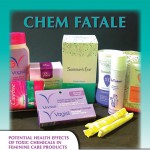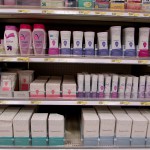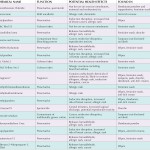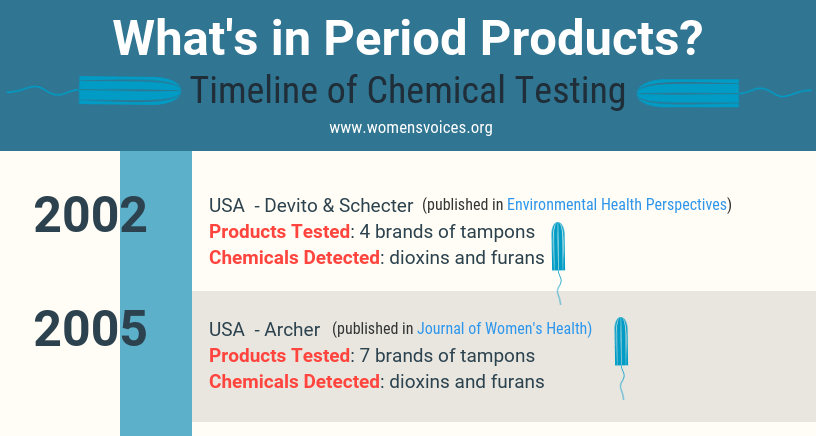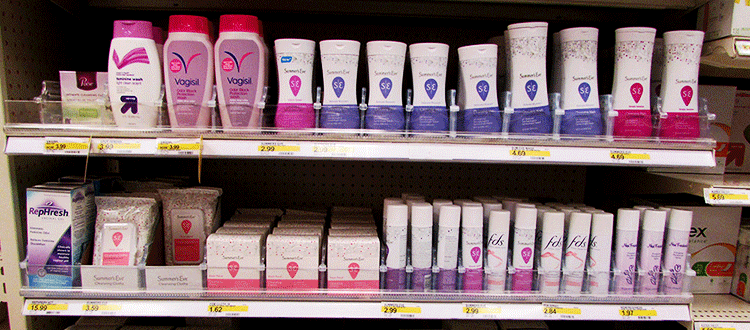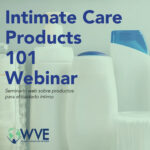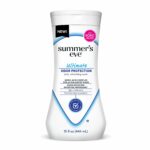#Detox the Box
Toxic chemicals don’t belong in feminine products. Period.
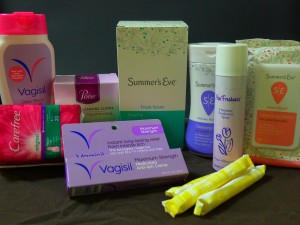 Are you surprised to learn that feminine care products—like tampons, pads, douche, wipes, and sprays—can contain hazardous chemicals? Unregulated toxic chemicals in feminine care products may result in serious health problems, like increased risk of breast cancer, reproductive problems, asthma, and allergic reactions. Chemicals of concern commonly used in feminine care products include carcinogens, reproductive toxins, endocrine disruptors, and allergens.
Are you surprised to learn that feminine care products—like tampons, pads, douche, wipes, and sprays—can contain hazardous chemicals? Unregulated toxic chemicals in feminine care products may result in serious health problems, like increased risk of breast cancer, reproductive problems, asthma, and allergic reactions. Chemicals of concern commonly used in feminine care products include carcinogens, reproductive toxins, endocrine disruptors, and allergens.
Vaginal tissue is much more absorptive than other skin, making the presence of hormone-disrupting and other toxic chemicals in feminine care products especially concerning.
Unfortunately, because of the lack of government oversight, toxic chemicals can legally be used in all kinds of personal care products without pre-market safety testing. In addition, it’s difficult for women to avoid some of these potentially harmful chemicals in feminine care products because companies are not legally required to disclose ingredients in tampons and pads and fragrance ingredients in other products.
The bottom line: Unregulated toxic chemicals have no place in feminine care products.
Toxic Chemicals in Feminine Care Products & Women’s Health
- Feminine care products, in one form or another, are used by the majority of women in the United States.
- Up to 86 percent of women use tampons in the U.S.
- Other feminine care products—douches, sprays, washes, and wipes—are used by up to 10-40 percent of women.
- Black and Latina women are disproportionately impacted by toxic chemicals in feminine care products, as they’re much more frequent users of feminine cleansing products like douche, wipes, and sprays.
- Anti-itch creams commonly contain chemical allergens or irritants and can actually exacerbate the very symptoms that women are attempting to treat.
- Lots of feminine care products contain formaldehyde-releasing preservatives, and formaldehyde is a carcinogen and a potent allergen.
- Feminine washes commonly contain ingredients deemed by the FDA to be safe “for external use only.” Given the reality of feminine wash and how it’s used, it seems inevitable that internal contact will occur from using feminine wash.
Solutions
What You Can Do to Reduce Your Exposure
- Avoid Hall of Shame products
- Print our Chemicals of Concern fact sheet and take it with you when shopping for feminine care products.
- Look for brands that disclose all ingredients, including what’s in fragrance.
- Reduce your use of feminine care products.
- Eliminate use of products that may be unnecessary to a healthy vagina.
- Choose unscented products where available (particularly tampons and pads).
- Choose chlorine-free bleached or unbleached cotton tampons and pads.
- If you are having allergic symptoms, switch brands! When you do switch – call the company’s 1-800 customer service to tell them why!
- Tell the FDA if you’ve had symptoms that may be from a feminine care product. Call 1-800-332-1088 or fill out a consumer reporting form.
What Companies Can Do
Eliminate Toxic Chemicals: Companies should develop policies to eliminate the use of carcinogens, mutagens, reproductive toxins, and endocrine disruptors from feminine care products. Additional product screening is necessary to ensure safety of use on mucous membranes.
Disclose All Ingredients: Companies should disclose all ingredients and additives used in tampons and menstrual pads, and all ingredients in fragrances used in feminine care products. Allergens should also be highlighted so women can avoid ingredients they may react to.
What Policy Makers Can Do
Decision makers must pass policies that require manufacturers of menstrual products like tampons, pad, period underwear, menstrual cups and discs, to disclose ingredients on labels; and ensure chemicals of concern are not allowed into these products and require better research into the impacts that ingredients in menstrual and intimate care products may be having on the health of people who use these products. To actions you can take to help ensure safer menstrual and intimate care products, click here!
Chem Fatale report / Informe en en español
Potential Health Effects of Toxic Chemicals in Feminine Care Products
Hall of Shame Products
This list provides several examples of worst-of-the-worst products which contain chemicals of concern discussed in our Chem Fatale report.
Chemicals of Concern
This list includes chemicals of concern that are discussed in our Chem Fatale report. Download & print this list and leave it in your purse or bag to refer to when you’re shopping for feminine care products.

